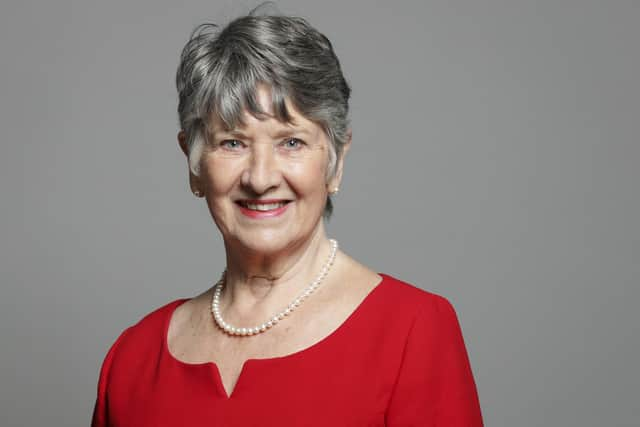Obesity is a ticking time bomb for the NHS and wider society - Baroness Walmsley
Around one in four children in year six was obese. Over recent decades, policymakers have announced hundreds of policies to tackle obesity, but adult obesity rates have continued to rise in Britain from just one in ten in 1970 to one in three today. The Government estimates that, unless we do something now, the cost of obesity to the NHS will be over £9.7bn each year by 2050.
Obesity has many causes and can lead to a lot of health problems such as diabetes, heart disease and cancer. A person’s likelihood of being overweight or obese is affected by factors, such as their income, age, gender, ethnicity, where they live and whether or not they have a disability or medical condition. However, it is agreed that a common cause is a poor diet.
Advertisement
Hide AdAdvertisement
Hide AdIn recognition of this growing public health crisis, the House of Lords has established a new, cross-party Committee, which I chair, on Food, Diet and Obesity, to report later this year. The Committee has been asked “to consider the role of foods, such as ‘ultra-processed foods’, and foods high in fat, salt and sugar, in a healthy diet and tackling obesity”. We will assess how shifts in behaviours and trends have affected obesity rates, how government policies have influenced these shifts, and the role of the food industry, shops and high street and online fast-food providers.


We will also scrutinise the growing and lively debate about the role in diet-related health of ultra-processed foods (UPFs), which have been described as industrially-produced, ready-to-eat foods that contain a range of chemicals like preservatives and flavourings, and which it has been estimated account for 63 per cent of daily energy intake in Britain.
The Committee held its first evidence session on February 8, and has already heard from anti-obesity campaigners, Dr Chris van Tulleken, author of Ultra-processed people and Henry Dimbleby, author of Ravenous and the Government’s former food tsar. We will continue hearing evidence over the coming weeks, including from the Government, scientific experts, campaigners, school food providers, local authorities, young people and families with lived experience, and, crucially, from the food industry itself.
On February 19, the Committee launched a call for written evidence, seeking views on: key trends in food, diet and eating patterns; the primary drivers of obesity; the impact of obesity on health; the specific influences on the diet of children and adolescents that contribute to the risk of becoming obese; the definition and usefulness of terminologies; the role of food labelling, packaging and advertising; the role of the food and drink industry in driving food and diet trends and on the policymaking process; lessons learned from other countries; the effectiveness of government policymaking in relation to food and drink policy tackling obesity; and what we could do better to prevent obesity in the future.
Advertisement
Hide AdAdvertisement
Hide AdObesity is a ticking time bomb for the NHS and for our entire society. It is costly, causes a lot of misery and urgently needs to be addressed. I urge anyone with an interest to get in touch with us.
Baroness Walmsley is the Chair of the House of Lords Food, Diet and Obesity Committee.
Comment Guidelines
National World encourages reader discussion on our stories. User feedback, insights and back-and-forth exchanges add a rich layer of context to reporting. Please review our Community Guidelines before commenting.